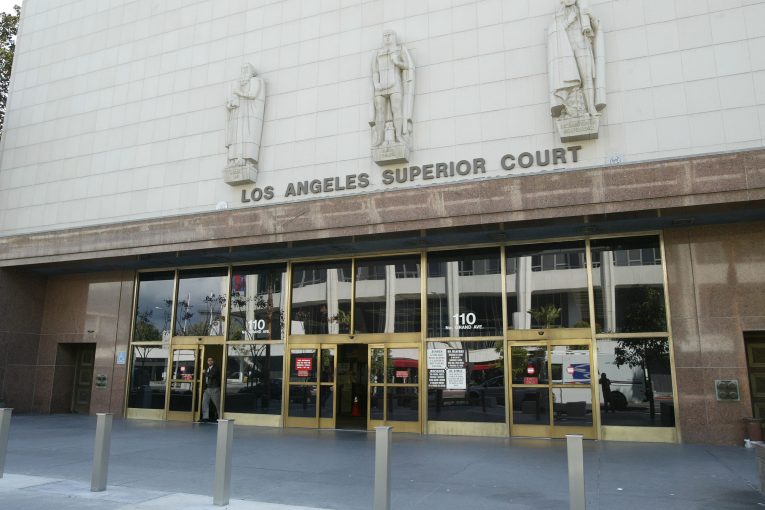
LOS ANGELES, CA- At a preliminary hearing in Los Angeles County Superior Court last week, Deputy District Attorney Willow Karfiol added a double charge and attempted to convict the accused of impairment by marijuana despite insufficient evidence and absence of evidence in expert witness testimony by either of the officers that testified.
The judge had some stated problems with the prosecution’s moves.
DDA Karfiol stated the evidence of the impairment by marijuana allegation arose from the accused admitting to not having consumed any alcohol, only smoking weed.
The accused was charged with driving under the influence (DUI) combined drug and alcohol, DUI combined drug and alcohol, driving with license suspended/revoked for DUI of alcohol/drugs, and fleeing a pursuing peace officer’s motor vehicle.
Before witnesses were called to testify, Judge Mark Zuckman questioned DDA Karfiol as to why Counts 1 and 2 “DUI combined drug/alcohol” were charged to the accused because they appeared to be identical charges.
On Sept. 16, 2023, at 12:41 a.m. on the Pacific Coast Highway in LA, El Segundo Police Officer, Brian Solver stopped the accused, testifying the accused repeatedly questioned why he was being pulled over, at which point the officer stated he “would get back to the accused in a few minutes.”
Officer Solver then said the accused drove away, made a U-turn and then returned to the parking lot. According to Officer Solver, the accused was non-compliant during this 60-second interaction.
“The accused exited the vehicle and walked toward the police car at which point I asked him to get on the ground,” and threatened to “tase” the accused when at first he did not go to the ground.
Officer Solver stated the accused “was agitated and argumentative at the police station,” and the officer asked the accused to submit to a chemical test and stated the accused didn’t comply with submitting blood or breath test. Officer Solver testified that “he [the accused] was impaired by alcohol and possibly marijuana.”
During cross-examination by Deputy Public Defender Jaime Bourns, Solver confirmed from her question the accused “never officially refused a field sobriety test” nor did Officer Solver suggest conducting any other field sobriety test.
DPD Bourns further confirmed “the officer never asked explained what FSTs (field sobriety tests) are to the accused, never asked the accused to do a walk and turn, and didn’t provide additional information [about the arrest] until the accused was in the back of the police car.”
The DPD also confirmed “he [the accused] kept repeating he didn’t do anything wrong and asked why the officer stopped him” but Officer Solver never explicitly explained why the accused was pulled over.
According to Officer Solver, “During the 60-second pursuit, the speed limit was 20-25 mph and the accused didn’t exceed 25 mph.” DPD Bourns clarified with Officer Solver the accused’s “non-compliance” even though “the accused never exited the parking lot.”
Officer Solver stated he told the accused “he committed violations and did do something wrong” but didn’t explain exactly what, as confirmed by DPD Bourns during cross-examination.
Before the accused was detained, Officer Solver didn’t opt to conduct any field sobriety tests at the scene but placed the accused in the back of the police car.
Sergeant Russel Patton stated he began talking about the field sobriety test once the accused was already detained but previously suggested Officer Solver conduct the test at the scene. Officer Solver and Sergeant Patton confirmed no field sobriety tests were conducted.
Officer Solver stated he has conducted “around 300 DWI investigations” during his time as an officer, upon which DPD Bourns asked Officer Solver if he was aware of the “option to order a warrant for a blood test to be done at a hospital.” Officer Solver stated his awareness of this option but confirmed he didn’t pursue that option.
DPD Bourns stated that “there was nothing further regarding the allegation of marijuana” because the accused stated he didn’t drink any alcohol and only smoked weed. Sergeant Patton was then briefly called to the witness stand to testify, and confirmed with DPD Bourns that he spoke with the accused when he was in the back seat of the police car when the accused stated he “smoked some weed earlier in the day.”
DPD Bourns confirmed with Patton he reviewed and approved the report written by Solver but they “didn’t include the accused’s statement of smoking marijuana in their police report.”
Following DPD Bourne’s cross-examination of Officer Patton, Judge Zuckman stated the officers “never followed up regarding when exactly the marijuana was smoked and how much.”
DPD Bourns argued there was insufficient evidence of the double charge and marijuana allegation because, “There wasn’t a field sobriety test conducted on sight or at the station, nor a blood test, which could’ve been conducted at a hospital with a warrant. There was no explanation of the field sobriety test.”
Judge Zuckman stated from the bench, “I can’t distinguish what conduct separates Counts 1 and 2.”
DDA Karfiol said, “The accused had a prior conviction,” but Judge Zuckman ruled the charges listed didn’t align with the evidence at hand, adding, “What evidence is there of marijuana? There was nothing in the testimony of the expert witness as to how long marijuana stays in the system.”
Despite the prosecution’s attempt to press double DUI charges and introduce the allegation of impairment by marijuana, Judge Zuckman stated his skepticism and ultimately moved to dismiss the proposed charge, citing a lack of evidence.